Carstens Tönnieshof
Floor Vase 7911-40 - Ethnic Decor in Light and Dark Brown - Carstens Tönnieshof - c1960s
Floor Vase 7911-40 - Ethnic Decor in Light and Dark Brown - Carstens Tönnieshof - c1960s
Couldn't load pickup availability
This impressive Carstens Tönnishof 7911-40 vase exemplifies mid-century West German pottery at its finest. Standing tall at 40 cm, it features striking sections in both light and dark brown, adding depth and visual intrigue to its design. The embossed pattern, with its rich texture, evokes the Brutalist movement, offering a tactile, almost raw feel to the surface.
Crafted in the 1960s, this vase showcases Carstens’ dedication to artistry and craftsmanship, with each piece hand-finished to perfection. The contrasting brown tones complement its robust form, making it a true statement piece. The base of the vase is embossed with Carstens’ signature mark, a testament to the high-quality production techniques synonymous with this iconic German brand. Whether displayed as a standalone decorative object or incorporated into a vintage ceramic collection, this vase brings a bold yet earthy aesthetic that seamlessly blends art and functionality.
Ideal for lovers of mid-century modern design, this piece adds a touch of timeless sophistication to any space.
- Material: Ceramic
- Model: Cartens Tönnieshof 7911-40
- Style: Mid-Century Modern / Brutalist
- Technique: Hand-glazed
- Place of Origin: Germany
- Mark: W. Germany 7911-40. Plus original metallic sticker mark.
- Date of Manufacture: 1960s
- Condition: Perfect condition
Dimension:
Height: 40 cm | 15.7 in
Diameter: 21 cm | 8.3 in
Weight: 2.7 kg
Share
- Worldwide Shipping
- Secure Packaging
- Loving Curation
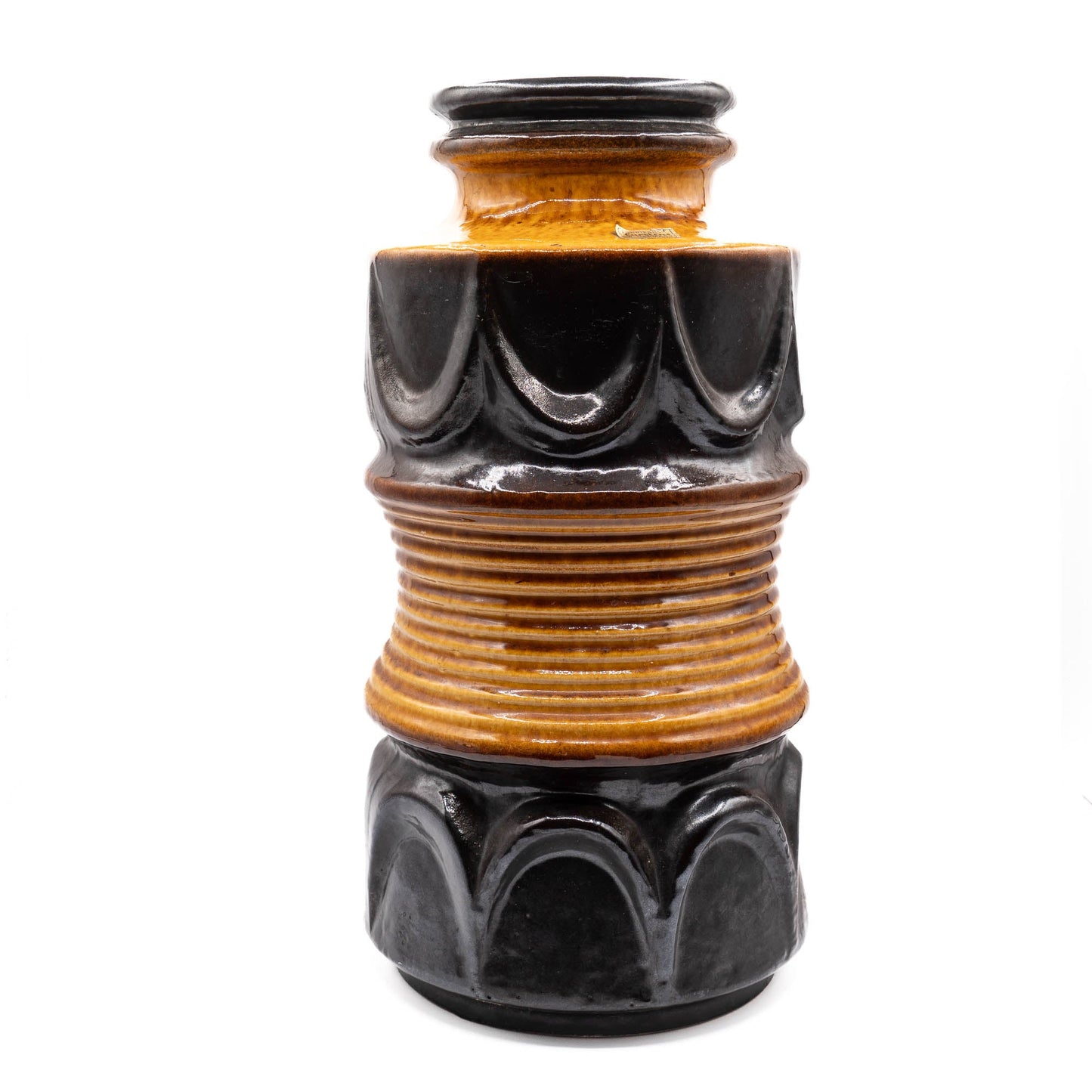
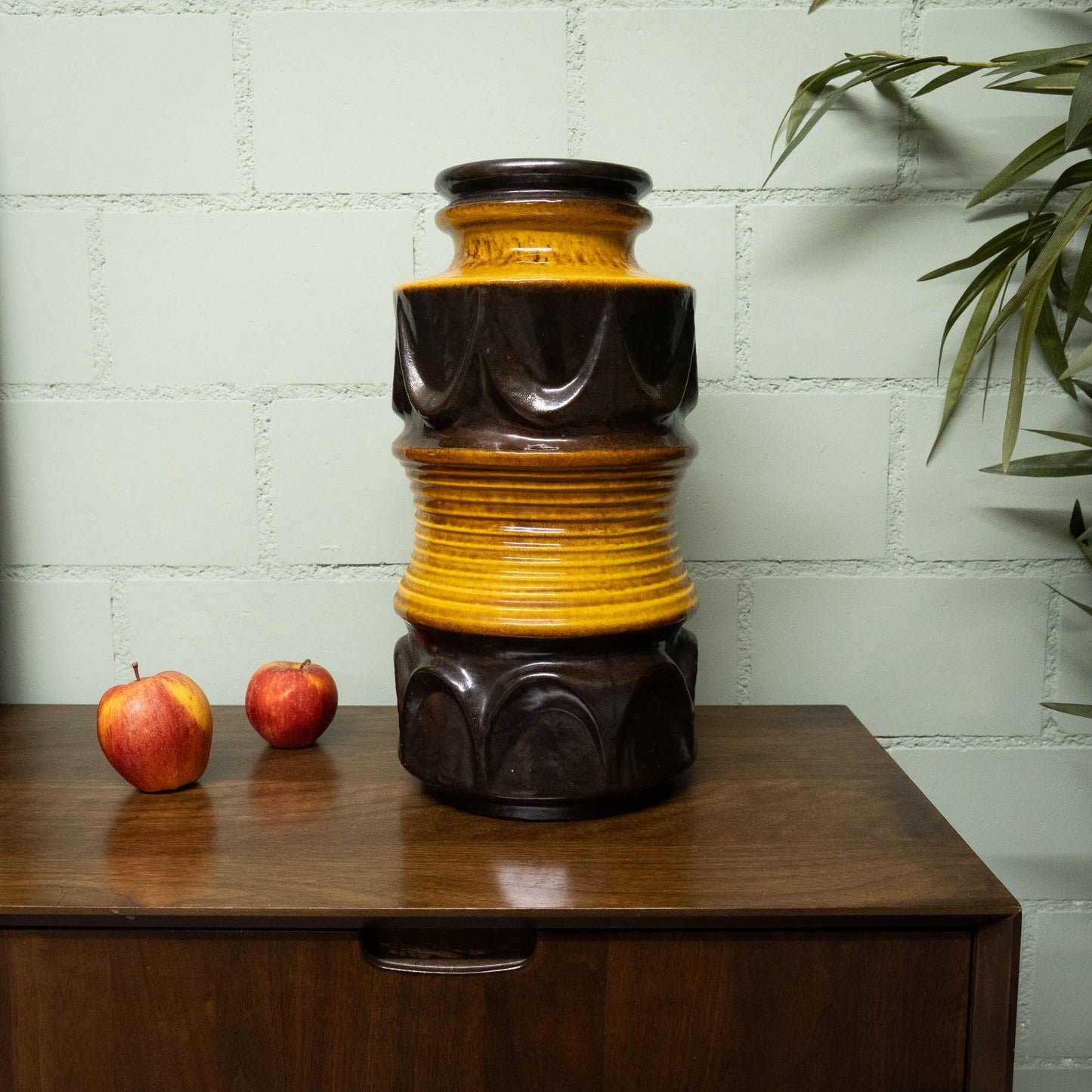
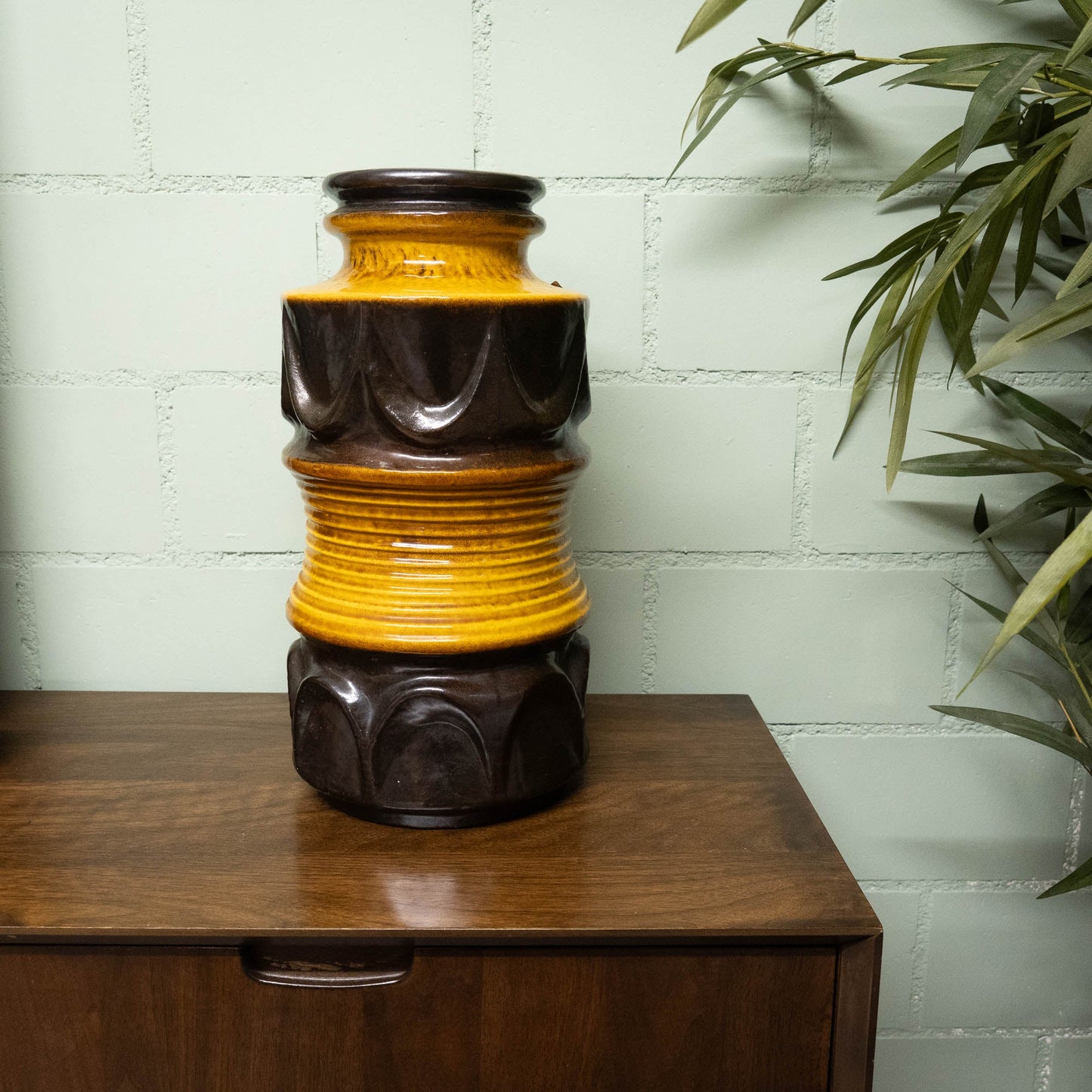
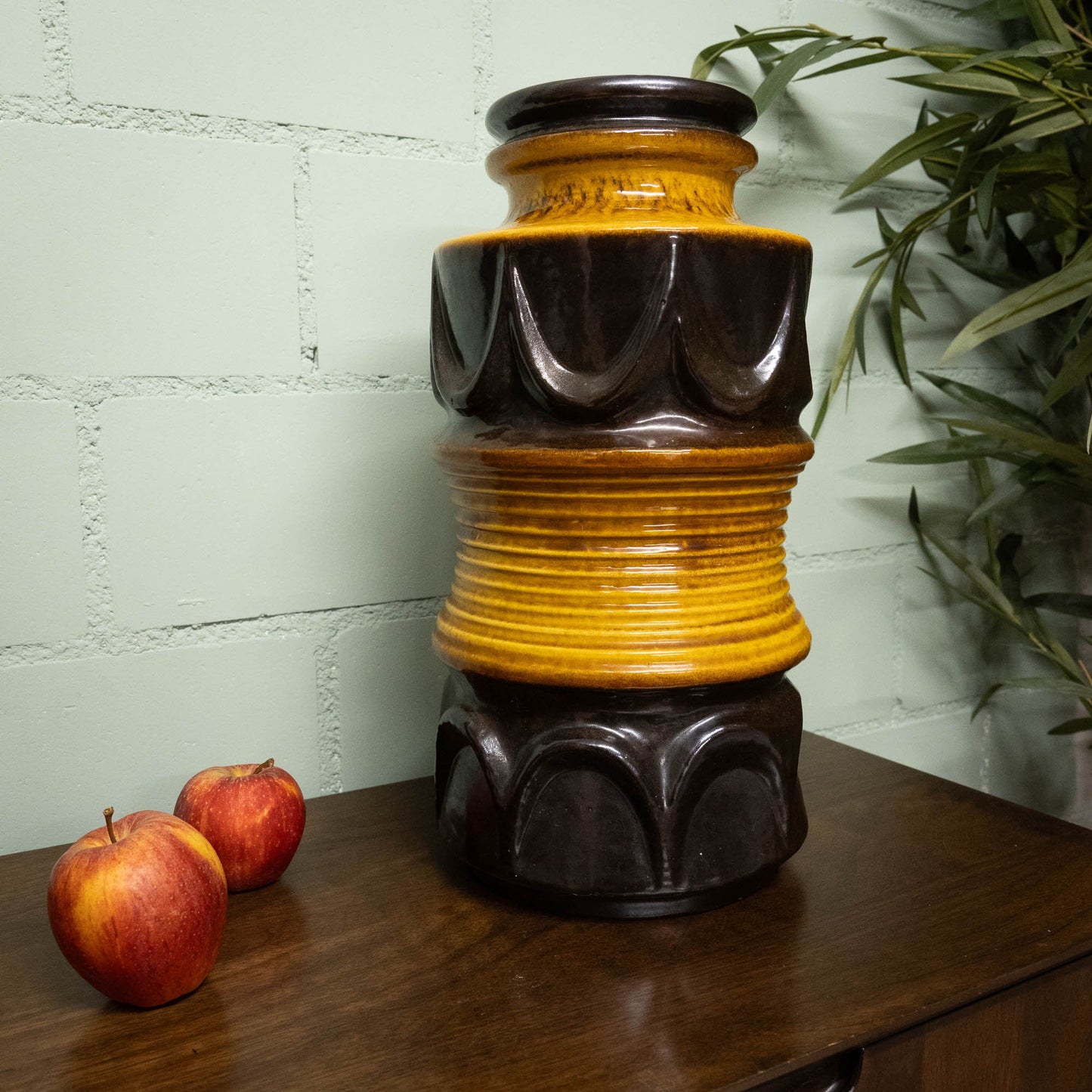
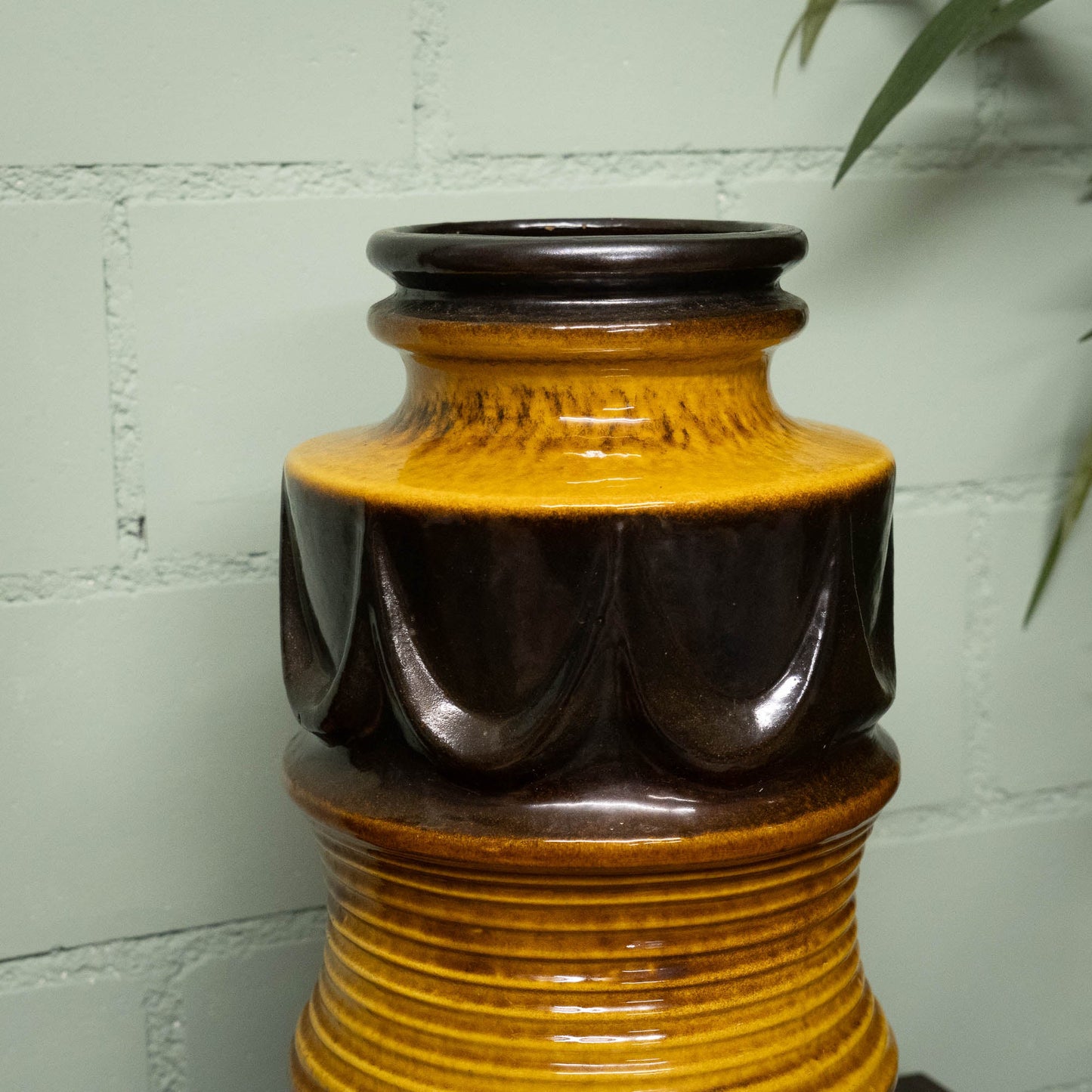
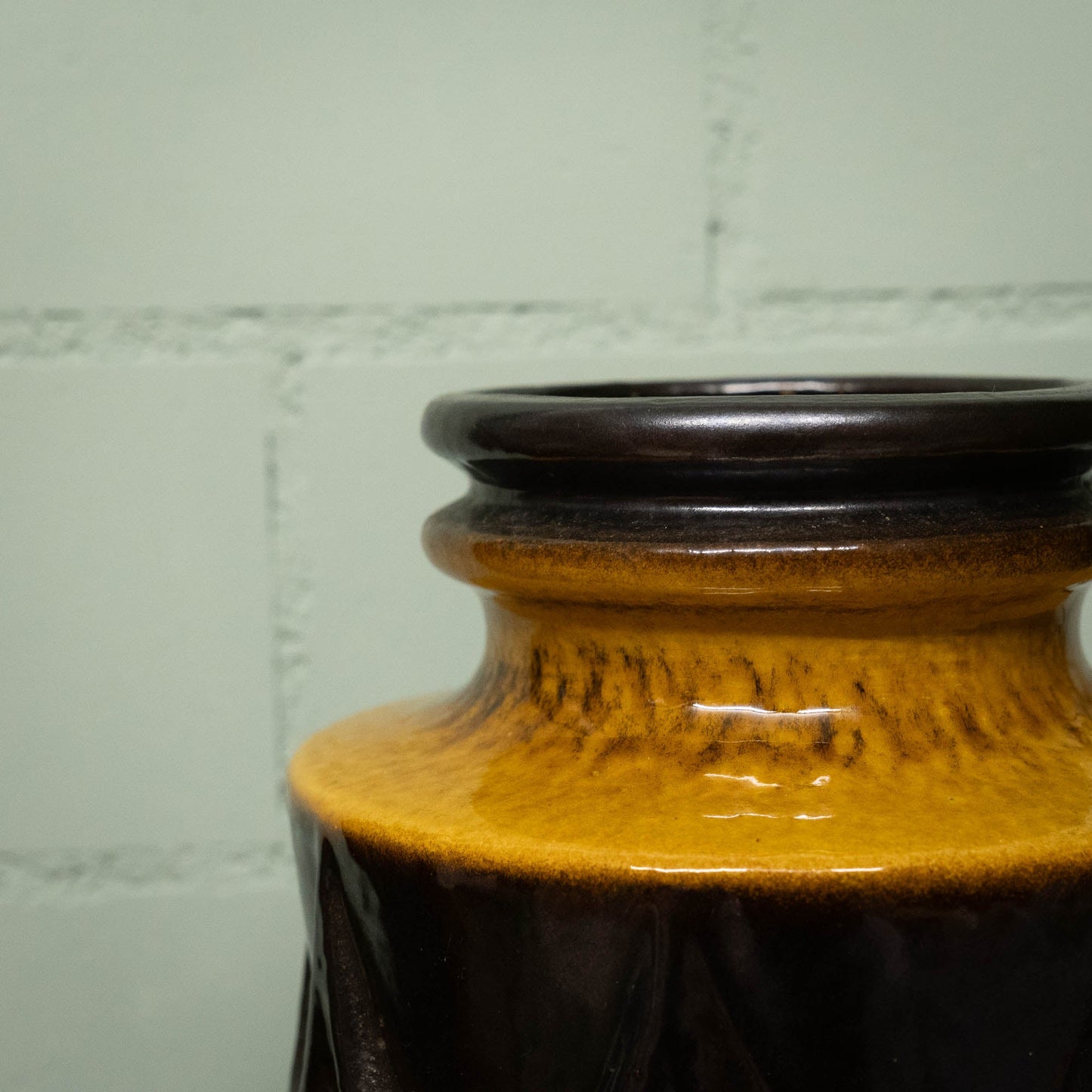
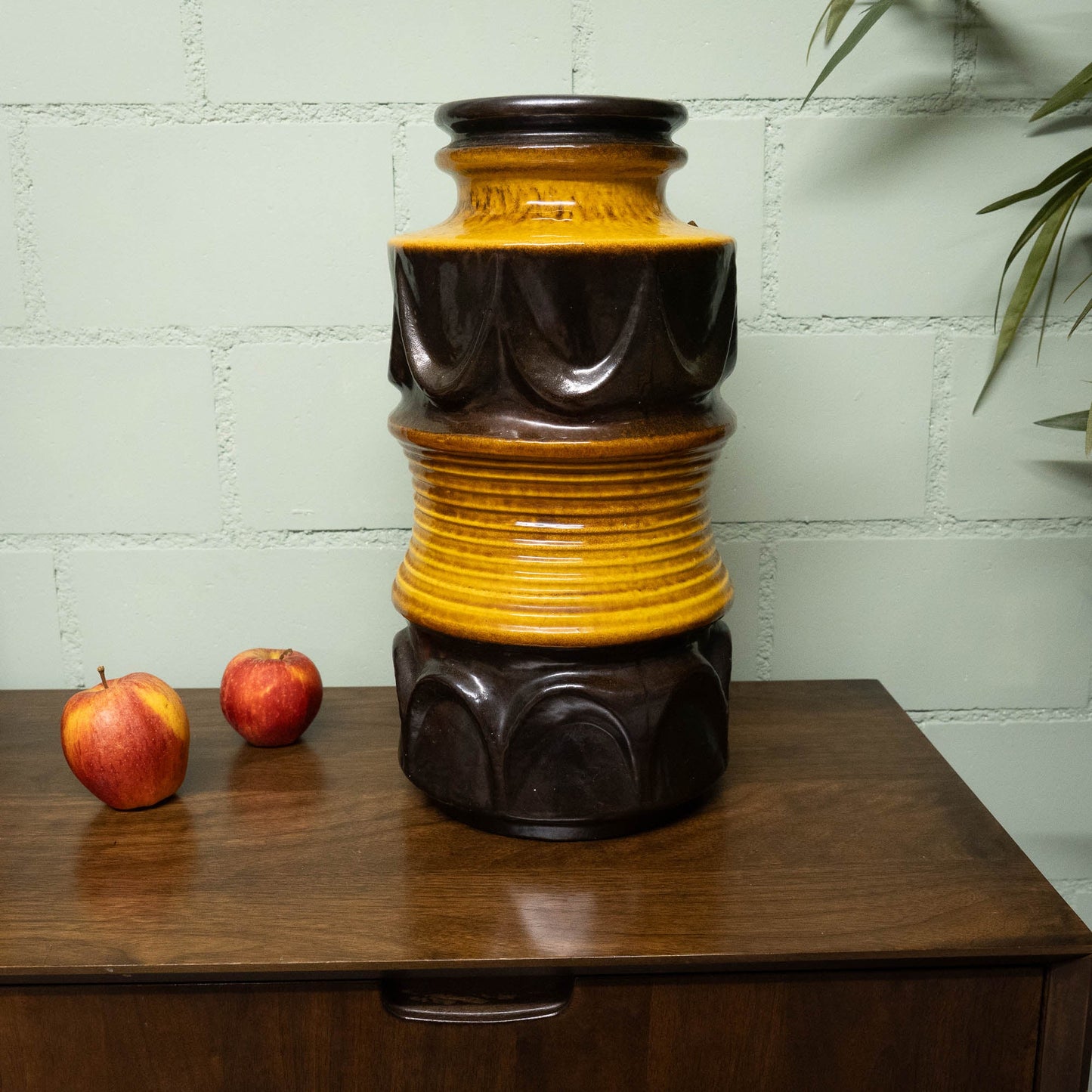
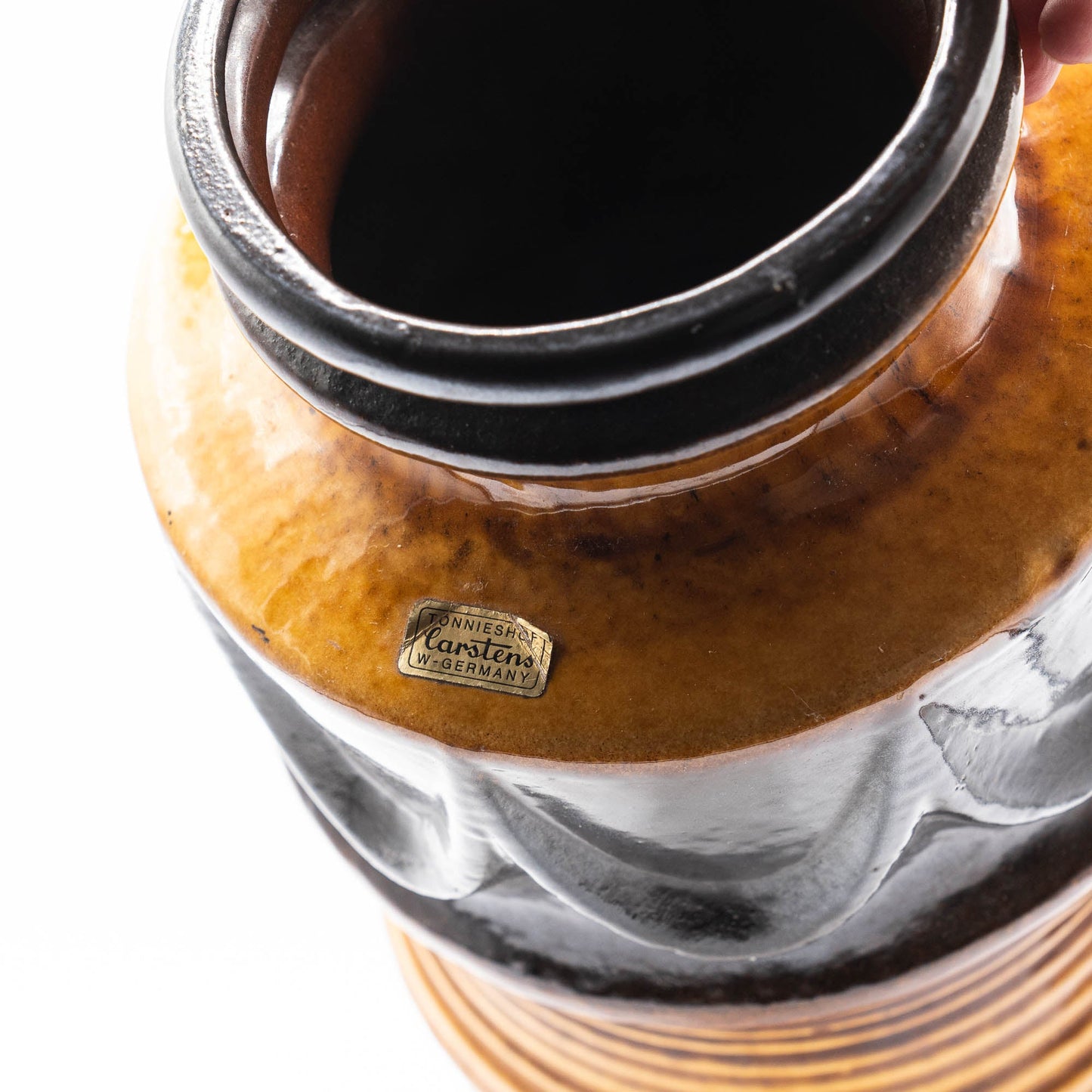
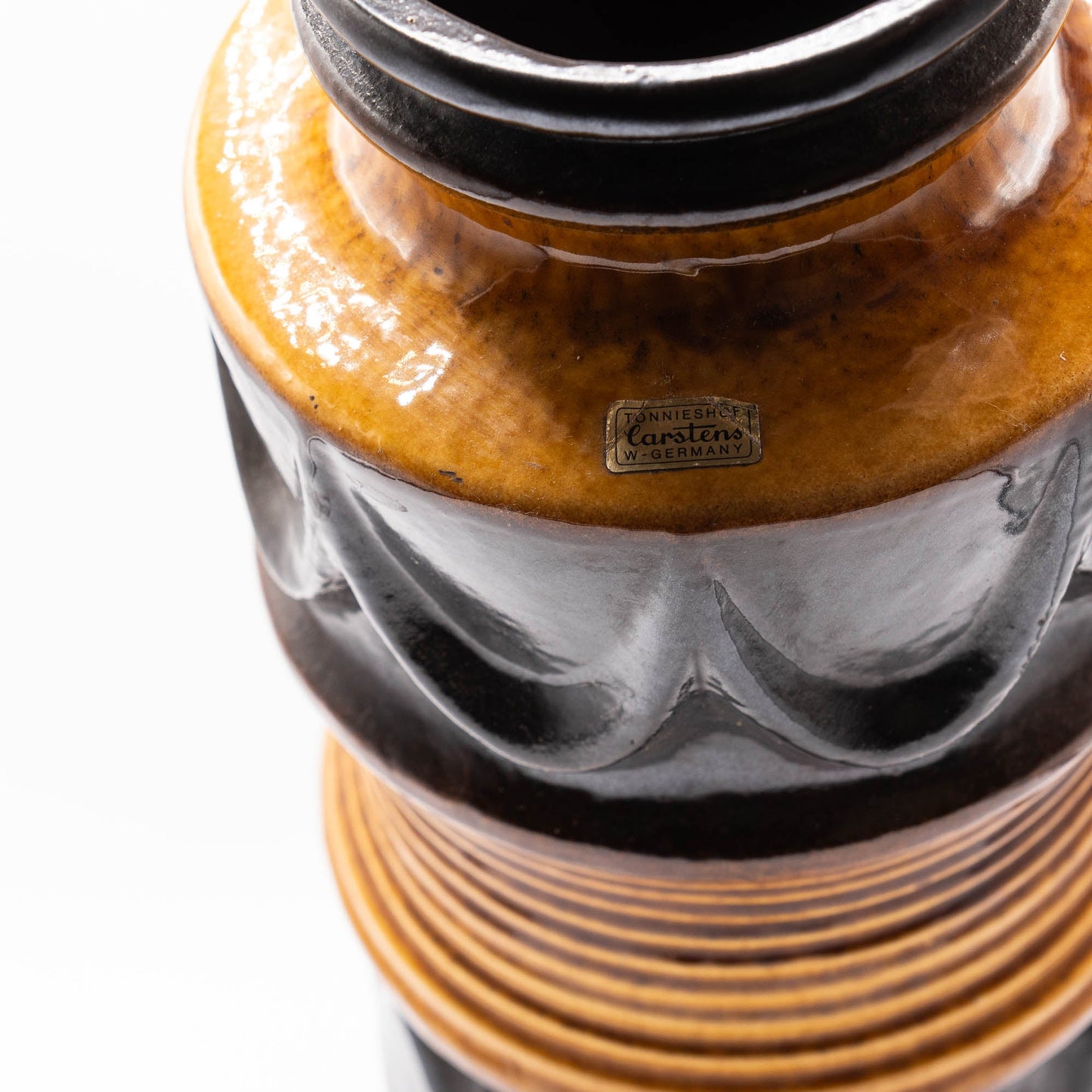
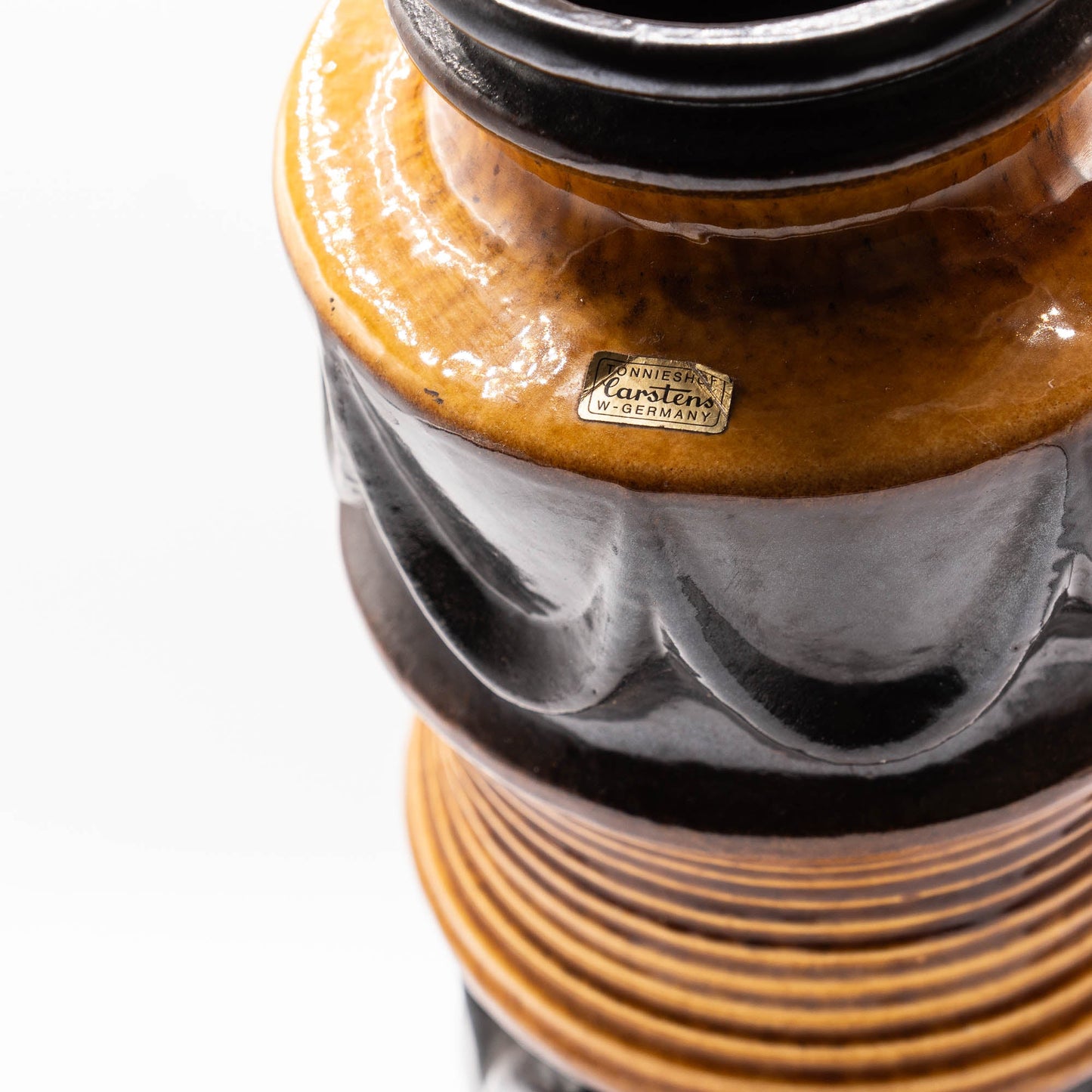
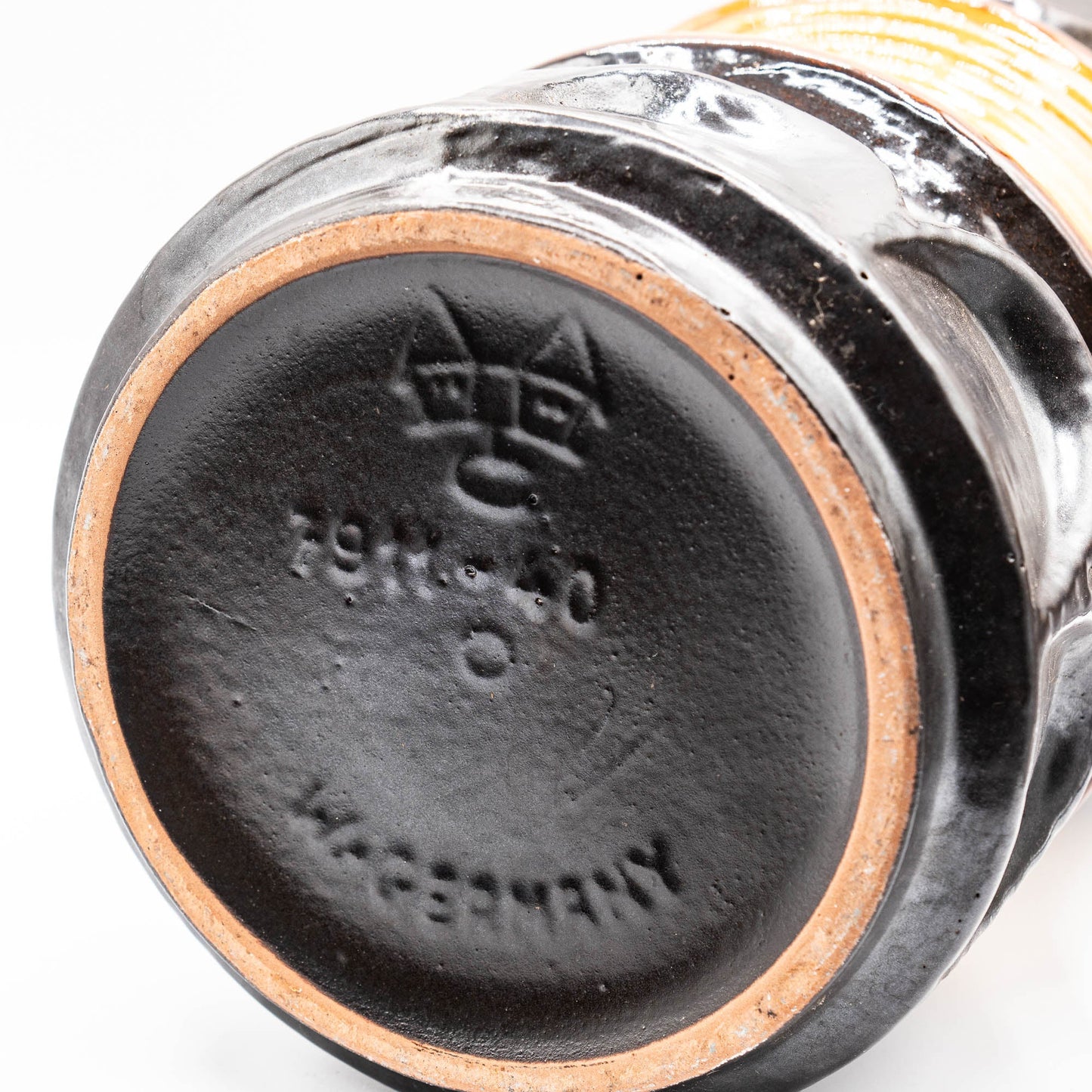
Origin & Maker
Carstens Tönnieshof was a well-known German pottery company, established in the mid-20th century and primarily associated with West German ceramics. The company was founded by Christian Heinrich Carstens and initially operated under the name "Carstens-Uffrecht." However, it wasn't until the post-war period, around the 1950s and 1960s, that Carstens Tönnieshof truly rose to prominence, producing a wide range of decorative ceramics that have become iconic pieces in mid-century design.
The company’s work is often characterised by bold, experimental forms, vibrant glazes, and unique, textured finishes. Many of their pieces, like other West German ceramics of the time, fall under the "Fat Lava" style, which became incredibly popular during the 1960s and 1970s. These designs often featured thick, volcanic-like glazes, with rich colour palettes and rugged surfaces, giving the pieces a distinctive and dramatic appearance.
Carstens Tönnieshof produced a variety of items, from vases to decorative tableware, and was renowned for their innovative use of form and glaze, often pushing the boundaries of conventional ceramic design. Today, Carstens' work is highly collectible, and their pieces remain a hallmark of mid-century modern German pottery, valued for both their aesthetic appeal and craftsmanship.
Blog posts
View all-

A Serendipitous Morning at the Rue de Bretagne ...
There are few joys in life that match the thrill of stumbling upon a hidden treasure, and for me, flea markets hold that magical allure. One of my favourite flea...
A Serendipitous Morning at the Rue de Bretagne ...
There are few joys in life that match the thrill of stumbling upon a hidden treasure, and for me, flea markets hold that magical allure. One of my favourite flea...
-

Emile Bourgeois and "Le Grand Dépôt" in Paris
Recently, I found this stunning Sarreguemines wash set. It was at the Brocante in Belfort, France. On this day, we had got up at 4 AM to be there in...
Emile Bourgeois and "Le Grand Dépôt" in Paris
Recently, I found this stunning Sarreguemines wash set. It was at the Brocante in Belfort, France. On this day, we had got up at 4 AM to be there in...
-

The Legacy of Robert Haviland: A Journey from N...
The story of Robert Haviland porcelain is one of artistry, transatlantic ambition, and enduring heritage. It begins in the mid-19th century when David Haviland, an enterprising New Yorker, founded Haviland...
The Legacy of Robert Haviland: A Journey from N...
The story of Robert Haviland porcelain is one of artistry, transatlantic ambition, and enduring heritage. It begins in the mid-19th century when David Haviland, an enterprising New Yorker, founded Haviland...














